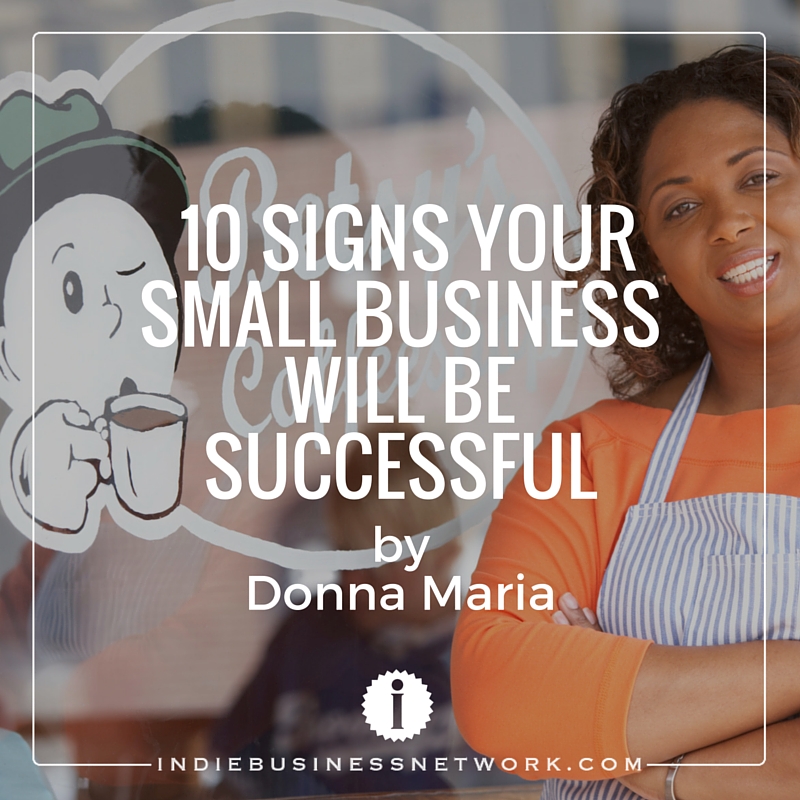This article is for all Makers and handmade entrepreneurs, but mainly for the newbies. One of the questions I get most often is: “How do I know my business will work?” The short answer is that you don't know. No one knows. Entrepreneurship is about many things, and one of those things is risk. When you start a business, you take a chance that it won't work out. It's like life. Every time you get behind the wheel of a car, or buy a new smart phone, or seriously date someone, or whatever, you take a chance that things won't work out. The difference with entrepreneurship is that you have to work a lot harder and longer to find out if things will work out, and that scares a lot of people.

And really, it should scare you. No one should start a business on a lark or whim. It should be something you are willing to commit yourself fully to, understanding that there is a great deal of risk involved. It's also a helluva lotta fun … but I digress. While we cannot know for sure that a business will or will not be profitable and sustainable over the long haul, there are some signs to look for early on. Here are 10 of them.
1. Other people are successfully selling what you are selling. If other people have made a business and a life out of selling what you want to sell, then you are definitely onto something. Success leaves clues. Watch what they do to discover things you can do too. See how their activities help them reach their target market. Rinse and repeat. If people will buy their products, they will likely buy yours if they are similar and targeted to a similar type of buyer. (Oh, and generally speaking, if you want to do something and you don't see anyone else at all in the wide world doing it, it's a clue that you are either the next Steve Jobs, or you're barking up the wrong tree.)
2. People come back to buy the same thing more than once. Once you stick your toe in the water to sell a few things, look to see whether or not people to come back to get more. If you're at the farmer's market and they taste your jam and then buy a few jars, that's a sign. If they come back next month and buy a few more jars, that's a better sign. If you lead them to your Facebook page and make it easy for them to tell their friends to buy your jam — and they do — that's a fabulous sign. Use surveys and in-person conversations to ask repeat buyers what they like about you products. Whatever they say, it's working. Keep doing it.
3. You can put systems in place and train others on how to use them. Once you get things under way a bit, you'll want to start to do the things that work over and over and over (and over) again. If you can give someone a precise recipe to make the jam that your customers love, then you have a system. This means that someone else can help you make the jam so you can make twice as much and sell twice as much.
Even if you are making everything yourself, you can still have systems. Make the jam on Mondays and the other products on Tuesdays. This frees you up to plan your business around your life and ensure that you are never making jam at the last minute. If you cannot create systems, either because the process is too complicated or you cannot seem to make yourself systematize things, your chances of long term success diminish significantly.
4. You keep trying new things, learning to fail fast. If you are willing to try some new things in your business, without knowing whether they will work, and you are further willing to pull the plug quickly if they don't work, then you are lining up the stars for success. For example, I once launched a print magazine and Oh. My. God. I managed to produce three issues, and Oh. My. God. It was a fun project, but it was not aligned with my resources or my business priorities. I pulled the plug quickly (in hindsight, not really soon enough) and moved on. Your chances of success increase dramatically if you are willing to try new things, and fail.
5. You know how to manage your energy. This is a big one. Know how much sleep you need, and get it. Know how much exercise and sunlight and vacation and family time and coffee and everything else you need to maintain a high energy level, and then organize your business around getting those things. If you are a mom, this is extra super important. Kids can make your brain feel scrambled and confused, so be sure to do whatever you need to do to keep your energy where it needs to be. If you cannot master this, and be flexible (because circumstances and *you* will change), you simply may not have the stamina you need to lead a sustainable business over the long haul.
6. You are not afraid to invest money in yourself and your business. I'm not suggesting that you buy every bright and shiny new program and event and ingredient that you come across. I am suggesting that if you don't seek out what you need to make yourself and your business successful, and then buy it (or borrow it or beg for it or do anything short of stealing it to get it), then you will be killing your business (and yourself) slowly.
Don't spend money on your business. Invest money in your business. Make sure that every dollar you spend will return at least that much over time, as you embrace and use what you buy.
7. Your spouse or significant other is fully on board. A spouse or significant other who resists your business efforts is a very good indicator of hard times to come. I cannot stress this enough. It will be nearly impossible for you to raise a successful, profitable and sustainable business if your spouse resents or rejects the idea, or otherwise makes it hard for you to make things happen. I don't have a solution for that, but I know it's true. Avoid that situation if you can. It spells doom and gloom.
8. You embrace some form of a consistent sales strategy. If you hate to sell, you are in trouble. If you hate to sell but are willing to learn how to do it anyway, you might be okay. If you hate to sell and learn how to do it and start making money and therefore, learn to love to sell, your empire is about to take root. You cannot stay in business long if you do not figure out how to sell your stuff.
9. You love what you do and why you are doing it. You probably love what you do, but let me tell you that you will not always love what you do every day. Some days, you will hate it. When you hate it, you'll need to draw on your why. Are you in business so you can sock away money to be comfortable in your old age? Are you in business to put your kids through college? Are you in business to provide for your family's day-to-day needs to day? What is your why? Define it and write it down. Be ready to live it when you feel like you hate your business. And at times, you will. Oh yes. You will.
10. You still have a personal life after your first year in business. If after a year of going business gangbusters, no holds barred, you still have a personal life, you are probably onto something. If your friends have not dropped you for missing all of their parties, your spouse or significant other still knows what you look like naked, your children do not feel like orphans, and you can begin to pay yourself more than few bucks a week, you are making great progress and your chances of long-term success will continue to expand.
Bravo!
So, there are 10 sings your small business will be successful. What do you think?
Best and Success!
![]()



